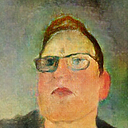I actually haven’t read enough about the Hong Kong protests to give an educated comment about them, but having lived in China for nearly a decade, I can say that I’m pretty skeptical of any Western reporting about anything in China.
Particularly relevant is the coverage of the 2008 Lhasa Riots. I was still in the States at the time, and my general impression of them was fuzzy, but the predominant narrative seemed to be that they were a righteous expression of the Tibetan peoples’ desire for freedom and independence timed to take advantage of the Olympics, which would force Beijing to show restraint.
Many years later, after I had been in China for bit, I took some time to research on my own what happened. They weren’t so much political demonstrations as they were pogroms against the Han and Hui. The rioters burned several Hui-owned hotels and shops, injured hundreds, and killed dozens, including an elderly Muslim woman who was beaten to death by a mob.
Manipulating public perception of China is incredibly easy because people in the United States and the West in general know so very little about it and they’ve been conditioned for half a century to view the CPC as a monstrous, amoral entity. They are Goliath and whoever opposes them is by default David.
The American public is also predisposed to believe that Buddhists are all peaceful, enlightened folks who just meditate all day and wouldn’t harm a fly, but there are violent Buddhist extremists (See the genocide of the Rohingya). So when you have a conflict between the peace-loving Tibetan Buddhists on the one hand and the evil soulless Chinese government, it’s easy to know which side to stand on.
Americans love a good simple narrative like that. We like knowing who to root for. Good guys and bad guys. Black and white. Really easy.
But the Tibetan monks have historically been the political elite. They starved the great masses of serfs while enforcing their hegemony through horrific violence and judicial mutilation. Today, the radical monks are the ones who organized the pogrom against the Han and Hui. But your crunchy granola aunt Debbie saw the Dalai Lama speak once and he said a bunch of nice inspirational stuff, so she feels as warmly about him as she feels cold toward the stern-faced CPC leaders.
You’ll also see many people in the West talk about 1 million Tibetans dying in a “genocide.” This comes straight from the “government-in-exile,” i.e. all those monk lords who got kicked out. The only other entity making this claim is the International Committee of Jurists, which was founded as a CIA soft-power front.
A huge chunk of those deaths were during the famines of the Great Leap Forward, some during the Cultural Revolution, a few thousand during the invasion but somewhere in the ballpark of 100,000 died due to unwinnable guerrilla warfare egged on by the CIA’s Tibetan Program. So how’s that for irony? The CIA starts a secret war, provides very little support for it, it fails, many people die, so it calls the deaths “genocide” and puts the blame on the country it’s trying to overthrow.
Anyways, on a related note, here’s a piece I wrote about the 228 massacre in Taiwan, which few people in the West have ever heard of.
